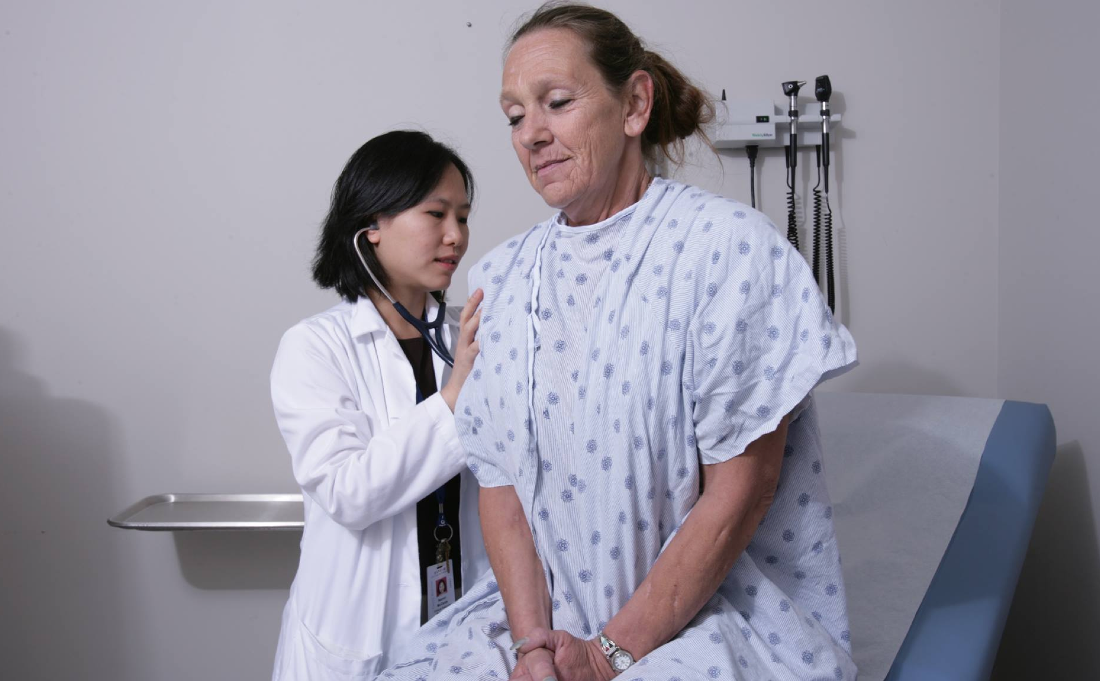
- Texas has both the highest number of uninsured people (4,000,000+), as well as the highest rate of uninsured (17%) in the country.
- Under the Affordable Care Act (ACA), the uninsured rate across the U.S. has dropped almost twice as much as it has in Texas.
- Texans with the lowest incomes continue to get health insurance coverage at a rate far below anyone else. Their uninsured rate is three times higher than higher-income Texans.
- Why are Texans with the lowest-incomes affected the most? The ACA provides health insurance coverage to this low-income population by offering to pay for the costs for states to expand their Medicaid programs to cover these families. But Texas has refused to accept the billions of dollars in federal funding to do so.
- That decision leaves between 750,000 and 1 million uninsured Texans in the health insurance Coverage Gap. This low-income group can’t get health insurance through Medicaid and they don’t earn enough money to qualify for federal subsidies to help them pay for health insurance on their own.
EHF’s research shows that the Affordable Care Act is helping many Texans obtain health insurance by removing barriers that prevented some from buying affordable health insurance. Unfortunately, the lowest-income Texans are unable to take advantage of all the ACA has to offer, because state leadership will not accept federal funds to provide health insurance coverage for this population.
Why is this happening? The ACA provides two mechanisms to help low and moderate-income families gain access to health insurance. For moderate-income families, the ACA provides subsidies to help families and individuals pay for health insurance plans if their incomes are between 138% and 250% of the Federal Poverty Level. For an individual, that means subsidies are available for a person earning around $16,000 to $30,000 a year. For a family of four, it means subsidies are available to families making between $33,000 and $60,000. Again, those subsidies help this moderate-income group pay their monthly health insurance premium.
For those with lower incomes (less than $16,000 a year for individuals and $33,000 for a family of four), states were offered significant federal funds to expand Medicaid benefits to cover this group. Expanding Medicaid in Texas would dramatically reduce the number of uninsured by more than 750,000 people. Yet, Texas has rejected Medicaid coverage expansion, along with the federal funds that would have largely paid for it.
“Texas has historically had the highest uninsured rate in the country,” said Elena Marks, EHF’s CEO. “While we’ve seen the uninsured rate drop considerably since the ACA, Texans with the lowest incomes still have little hope for affordable health insurance. Unless Texas expands Medicaid or comes up with another system of coverage for this group, they will remain uninsured.”
Without health insurance coverage, health care for the lowest-income individuals and families often falls on Texas taxpayers through state and county programs that provide for uncompensated hospital care.
Congregations and community groups can help speak out and be advocates for the desperate need for policy change. Expanding Medicaid or coming up with an alternative plan for health coverage would ensure access to affordable health services for all Texans — especially those who are in the greatest need.
For more information about the uninsured and the Coverage Gap in Texas, you can look at EHF’s current research on the ACA and the uninsured in Texas. In addition, the Center for Public Policy Priorities (CPPP) and Texas Well and Healthy have a number of useful resources to help you learn more about the crisis facing the uninsured in Texas.
If your church or organization would like to partner in our efforts to increase access to health insurance and other benefits, please contact us.